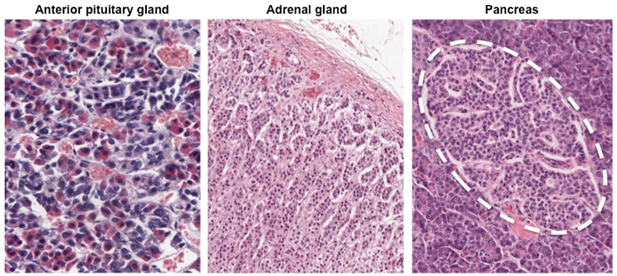| Endocrine glands
Endocrine glands are specialized for
production and secretion of proteins and hormones. They are
typically organized as clusters or cords of secretory epithelial
cells and differ from exocrine glands in two major ways:
- Lack a system of ducts
- Secretory products are released
into the extracellular space where they act on nearby target
cells or enter into the blood vasculature to travel to their
target organs
Take a look at these samples of
pituitary gland,
adrenal gland,
and the Islets of Langerhans
in the pancreas,
all of which function as endocrine glands. Notice in these specimens
and in the images below that the glandular epithelia are organized
in clumps or cords, there are no ducts, and blood vessels are
located near the clusters of epithelial cells.

Before going on,
try
this little pop quiz on epithelia. It's a self-assessment and no one
but you sees the score.
Let's now take look at connective tissue. |